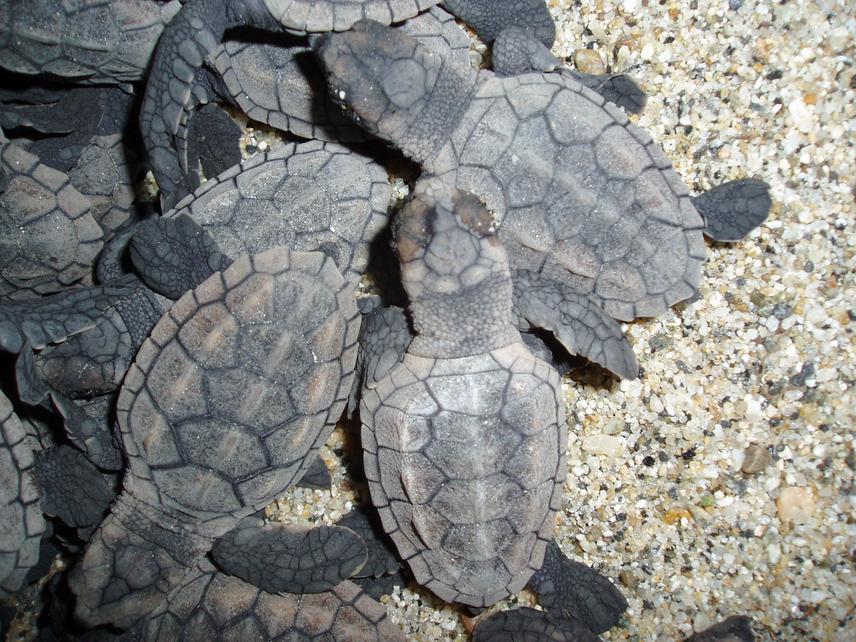Irma Jurrius
The objective of the project is to create an enabling environment for sustainable practices and nature conservation through environmental awareness raising activities and stimulating a community dialogue.

The first turtles crawling up out of the sand.
The Tayrona Park is one of the most beautiful and most visited natural parks in Colombia. Tourists come from all over the world to appreciate its variety in natural landscapes. In 1964 the Tayrona Park was declared National Natural Park for its diversity in ecosystems, large quantity of endangered species, and for being an area ancestrally occupied by indigenous communities. Declaring an area Natural Park offers the necessary legal status for nature conservation but it still takes a long road to change the stressed human-nature relation.
The Tayrona management plan identifies the human pressure, because of lack of environmental sensitivity and poverty, as the interesting challenge for nature conservation. Part of the community in and around the Tayrona Park managed to change their way of thinking and acting towards nature and started sustainable development initiatives, but there are still poachers, fisherman and farmers who continue with harmful practices towards the flora and fauna. Institutions and organizations will have to work with local communities through joint conservation action, environmental education and training on alternative sources of sustainable income.
This project “Environmental education and nature conservation for and with the local community living in and nearby the Tayrona Park” has as its overall objective through environmental awareness raising activities and community dialogue create an enabling environment for sustainable practices and nature conservation with a special focus on marine turtles visiting the Tayrona beaches during the reproduction phase. Unfortunately, as in many parts of the world, we face a continuing decline of turtle population in the region, fisherman and poachers, even though illegal, kill the female turtles and collect their eggs.
The project will be executed by local “conservationist” and local volunteers (tourist guides, schoolteachers and students of nearby universities). Workshops will be organized for the community on ecosystem conservation, endangered species and sustainable development. We will start a dialogue with poachers, fisherman and farmers on a “community member- community member” level, which often is more effective than “community member- organization” level. Besides this, the volunteers will control the beaches during the turtle season to protect the few turtles still arriving to lay their eggs. Creating environmental awareness is a process, during the coming year we will keep you informed on our activities and its results.